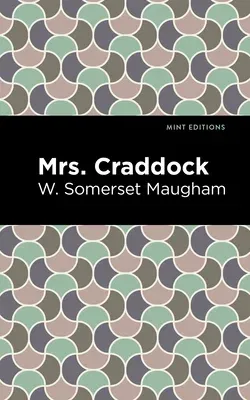Mrs. Craddock (1902) is a novel by W. Somerset Maugham. Controversial
for its portrayal of infidelity and marriage across social classes,
Mrs. Craddock was instrumental in establishing Maugham's reputation as
a leading author of the late Victorian era. Due to its content, the
novel appeared exclusively in Bowdlerized form until Maugham saw it
republished in 1938. Bertha Ley has always been independent. Orphaned at
a young age, she comes into a sizable inheritance at 21 and declares her
wish to marry Edward Craddock, a 27-year-old from a working-class
background. Despite his initial hesitance, she encourages him to propose
and assures him that they can raise a family together. As she signs over
control of her fortune to Craddock, ostensibly to give him the
confidence he desperately needs, Bertha slowly realizes that she is
unattracted to almost everything about him. His morals, interests, and
attitudes are all shaped by a way of life she will never understand, and
he appears solely dedicated to raising his animals. When their first
child is stillborn, things begin to change for the young husband and
wife--Bertha retreats while Edward leans into his commitment to work,
even taking an interest in local politics. Although Bertha begins to
accept her unhappiness, something inside her remains undeterred, longing
to be released. With a beautifully designed cover and professionally
typeset manuscript, this edition of W. Somerset Maugham's Mrs.
Craddock is a classic work of British literature reimagined for modern
readers.


